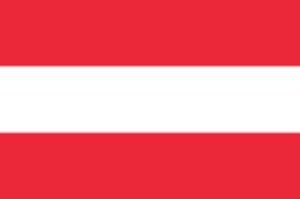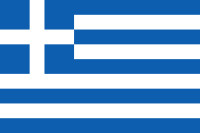
The Italy Business Travel Guide contains useful traveller tools and resources aimed at assisting business travellers on their trips. The guide contains information such as facts on Italy, visa information, business customs, culture, tips, and more. An appreciation and knowledge of other cultures, languages, customs and traditions can be a distinct advantage for business travellers helping to foster better understanding, avoid cultural misunderstandings and helping to create a successful business trip.
Italy has an advanced and developed economy with a number of business opportunities. It has one of the largest economies in Europe and a founding member of the EU, OECD, G7, G20, NATO and the World Trade Organisation (WTO). Major trading partners include EU neighbours Germany, UK, Spain, France and the USA. Italy is a multicultural, multiracial country and home to a number of ethic groups. Italy shares borders with Austria, France, Switzerland and Slovenia; to the south is the Italian Peninsula.
The country has a variety of landscapes including the Alps in the north, the beaches across the coastline, volcanoes, lakes and a range of flora and fauna. Famous attractions include the Colosseum, the Pantheon, Trevi Fountain, Piazza Navona and the Spanish Steps in the capital Rome, the Vatican, the learning tower of Pisa, Pompeii, Venice, Lake Como, Lake Guarda and the Amalfi Coast.
Italy Guide
Quick Facts on Italy
Italy Travel Advice
Visa Requirements
Business Customs and Etiquette
Travel Advice and Tips
Public Holidays
Italy Map
Italy Weather & Climate
Quick Facts on Italy
Country: Italy
Capital: Rome
Currency: Euro (1 euro = 100 cents)
Population: 61 Million (UN, 2012)
Area total: 301,263 sq km
Languages: Italian
Time Zone: GMT +1
Daylight Saving Details: Starts in late March until late October
Electricity: 220V 50Hz
Dialling Code: 39
GDP: USD 2.071 trillion (World Bank, 2013)
Religion: Predominately Christian (Catholic, Protestant) with Muslim and Jewish minorities.
Political System: Republic
Internet Domain: .it
Italy Travel Advice
The Foreign and Commonwealth Office offers travellers useful advice when travelling to Italy. Here you can find further advice on entry requirements for Italy, advice on local laws and customs, tips on safety and security and the address and contact details of the British Embassy in Italy. The information is usually up to date making it a valuable resource to check for business and leisure travellers, prior to starting their trips. For more information please see: Italy Travel Advice
Visa Requirements
No visa requirement for national of EU member states. No visa need for US and Canadian nationals for visits less than six months. Visa requirements are subject to change with changes in requirements and rules for further information please see: Italy Embassy UK
Business Customs and Etiquette
Business attire is conservative and stylish, appearance is taken seriously. Business meetings should be arranged in advance. Greetings at meetings are usually with a handshake and eye contact, should wait to be invited to use first names. Business cards are exchanged. Trust is important and it should take a few meetings to establish this, hierarchy is followed and it can take time to reach decisions. Some Italian business people speak English; however interpreters are available if needed.
Whilst the north of Italy has a faster pace to getting on with the business in hand, in the south a more leisurely approach is employed as they like to know the person they are doing business with small talk viewed as an essential element of doing business. There may be haggling over price in negotiations. Business lunches are a popular way of getting to know colleagues and doing business.
Travel Advice and Tips
The vast majority of trips for business travellers and tourists to Italy pass by without any incidents or trouble. You should however be alert to the possibility of pick pockets and bag snatchers in crowded public areas, bikes and mopeds are often used. It is wise to use a bag that goes across your shoulders. Car crime can be a problem and no valuables should be left in cars. Always remain alert and vigilant to your surrounds and environment to help stay away from trouble.
Travel Checklist: See our Travel & Holiday Checklist containing useful tips and reminders to ensure you have everything you will need on your trip.
Travel Vaccinations: For the latest travel health advice it is recommended you check with your GP whether you require any vaccinations up to eight weeks before you travel. For more information and advice on travel vaccinations please see the NHS Fit for Travel website.
Tipping: If service charge is not included usually around 10%
Hours of Business:
For Businesses:
8.00/9.00 to 12.00/13.00 then 15.00 to 18.00/19.00 Monday to Friday
For Banks:
08.00 to 14.00 Monday to Friday (closed on public holidays but ATMs available)
Public Holidays
Public Holidays (2015):
January 1: New Year's Day
January 6: Epiphany
April 6: Easter Monday
April 25: Liberation Day
May 1: International Labour Day
June 2: Republic Day
August 15: Assumption of Mary
November 1: All Saints' Day
December 8: Immaculate Conception
December 25: Christmas Day
December 26: Saint Stephen’s Day
Italy Map
Map of Rome, Italy
View Larger Map
Italy Weather & Climate
Italy is located in southern Europe and includes varied geography resulting in a range of climates. Italy has a number of climatic zones across the country, the north of Italy has sunny summers with cold winters including snowfall usually between December and March. The central area enjoys a milder climate with longer summers and higher humidity in Rome and Florence. The south of Italy has a notably warmer climate than the north, the summer is long and hot with milder winters and snowfall a rarity. Much of Italy enjoys a Mediterranean climate ensuring it is a destination that can be visited throughout the year.
Lightweight cotton and linen clothing can be warn in the summer months; Mountain/Alpine wear clothing is required in the mountain regions throughout the year. Additional layers and warmer clothing is required during the autumn and winter months.
Disclaimer: The information given in on this website is given in good faith and to the best of our knowledge. If there are any discrepancies in no way do we intend to mislead. Important travel details and arrangements should be confirmed and verified with the relevant authorities.




